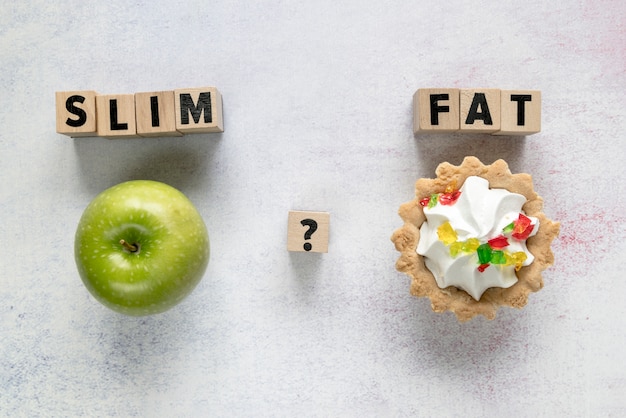
Many people struggle to lose weight because they follow incorrect advice. There are countless myths and misconceptions about weight loss, particularly on the internet and in print media. These false methods can be counterproductive in the long run. Here are some of the most misleading weight loss myths you should know about.
Top 25 Weight Loss Myths
1. Weight Loss Supplements = Weight Reduction
Many health products, especially weight loss supplements, promise quick results. However, most users do not see long-lasting effects. Some supplements may work due to placebo effects or increased awareness of food intake, but they aren’t magic solutions. Effective weight loss also requires a good diet and quality workouts.
2. Eat Less, Exercise More
You’ve likely heard that eating less and exercising more ensures weight loss. While burning more calories than you consume can lead to weight loss, this advice doesn’t work for everyone, particularly those with extreme obesity. Eating too little can increase food cravings, leading to weight gain. The key is to get the right nutrition and engage in high-intensity workouts regularly.
3. Eating Foods High in Fats Is Bad for Weight Loss
It’s commonly believed that eating fats contributes to weight gain. However, healthy fats don’t necessarily cause weight gain, especially if your caloric intake is appropriate. Calorie-rich foods are the main culprits. Studies show that low-carb, high-fat diets can aid in weight loss. The problem arises when combining fats with high-carb junk food.
4. Skipping Breakfast Can Lead to Weight Loss
Skipping breakfast is not a good strategy for weight loss. People who skip breakfast tend to gain more weight because they snack more throughout the day. A balanced breakfast with proteins, carbs, and fats keeps you full longer and reduces snacking.
5. Carb-Rich Items Spur Weight Gain
While low-carb diets can be effective, completely avoiding carbohydrates is unhealthy. The body needs carbs for energy. It’s the overconsumption of refined carbs like sugars and processed grains that leads to weight gain, not whole foods rich in carbs.
6. Diet Foods and Beverages Are Great for Weight Loss
Packaged “diet” foods often contain harmful ingredients and may not aid in weight loss. They can even contribute to weight gain. Labels like gluten-free or low-fat can be misleading. It’s better to focus on whole foods.
7. All Calorie Types Result in Weight Gain
Not all calories are equal. Calories from different sources are processed differently by the body. Protein calories have a positive effect on metabolism and appetite suppression compared to calories from carbs or fats. Whole grain foods and fruits are more filling than processed foods.
8. Dieting Really Helps in Weight Loss
Many popular diets don’t lead to sustainable weight loss. People often gain weight back after dieting. Instead, focus on mindful eating, including healthy foods, exercise, and proper nutrition.
9. Weight Loss is Always Healthy
Weight loss is not always healthy, especially if muscle is lost instead of fat. Aim for diets that reduce fat while retaining muscle to avoid negative health impacts.
10. Foods With Negative Calories Can Help You Lose Weight
Some low-calorie foods, like celery and grapefruit, are believed to burn more calories than they contain. However, this isn’t true. Eating large amounts of these foods can still lead to weight gain.
11. Natural Weight Loss Products Are Safe
Natural supplements are not always safe, as they don’t require FDA approval and may contain harmful compounds.
12. If You Want to Lose Weight, Avoid the Foods You Crave
You don’t need to avoid foods you crave. Consuming fewer calories than you burn is what matters. Cravings might indicate your body’s need for certain nutrients.
13. Eat Non-Fat Foods To Lose Weight
The focus should be on overall caloric intake, not just fat content. Fat-free foods can be high in sugar or sodium, leading to weight gain.
14. Skip Meals to Lose Weight
Skipping meals can increase hunger and result in overeating later. Eating regular, balanced meals is more effective for weight control.
15. Avoid Bread to Stop Weight Gain
A balanced diet that includes carbs is important. Overeating any macronutrient can lead to weight gain.
16. Avoid Desserts For Weight Loss
Eating dessert during the day can prevent cravings later. Including sweets in a balanced diet doesn’t necessarily lead to weight gain.
17. Only Exercise Works For Weight Loss
Exercise alone is not enough for weight loss. Diet and nutrition play crucial roles in creating a caloric deficit needed for weight loss.
18. Lose Weight By Becoming Vegan
Being vegan or vegetarian doesn’t guarantee weight loss. Unbalanced diets can lead to deficiencies and weight gain. Diets must be carefully planned.
19. Don’t Weigh Yourself
Monitoring your weight can be helpful. While weight can fluctuate, it’s important to track progress and make adjustments accordingly.
20. Slimming Pills Work
Slimming pills often promise unrealistic results and can have side effects. Sustainable weight loss requires a balanced diet and exercise.
21. Healthy Foods are Costly
Healthy eating doesn’t have to be expensive. Simple, home-cooked meals can be both nutritious and affordable.
22. Avoid Snacking
Healthy snacks can fuel workouts and help maintain energy levels. Choose snacks wisely based on their nutritional value.
23. Water for Weight Loss
Water doesn’t increase metabolic rates but can help you feel full and prevent overeating. Staying hydrated is important for overall health.
24. There is a Magic Bullet for Weight Loss
There is no single solution for weight loss. Over time, metabolism slows, making it necessary to adjust diet and activity levels.
25. Aerobic Works Better Than Weight Lifting
While cardio exercises burn calories, strength training boosts metabolism and helps build muscle, which can aid in long-term weight loss.
Conclusion
Weight loss is complex and not a straightforward process. Simply controlling diet and exercise doesn’t guarantee results. Sustainable weight loss requires balancing calorie intake with a healthy diet and exercise, accounting for changes in metabolism as you age. Understanding the intricacies of weight loss can help you approach it more effectively.